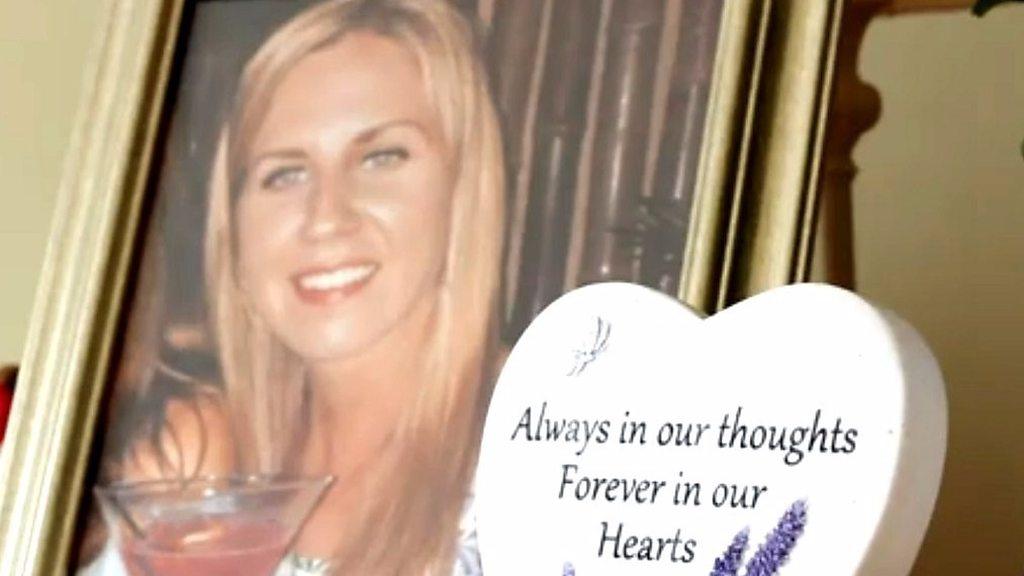Inquest delays: Three-year wait for answers over death of girl, 4
- Published
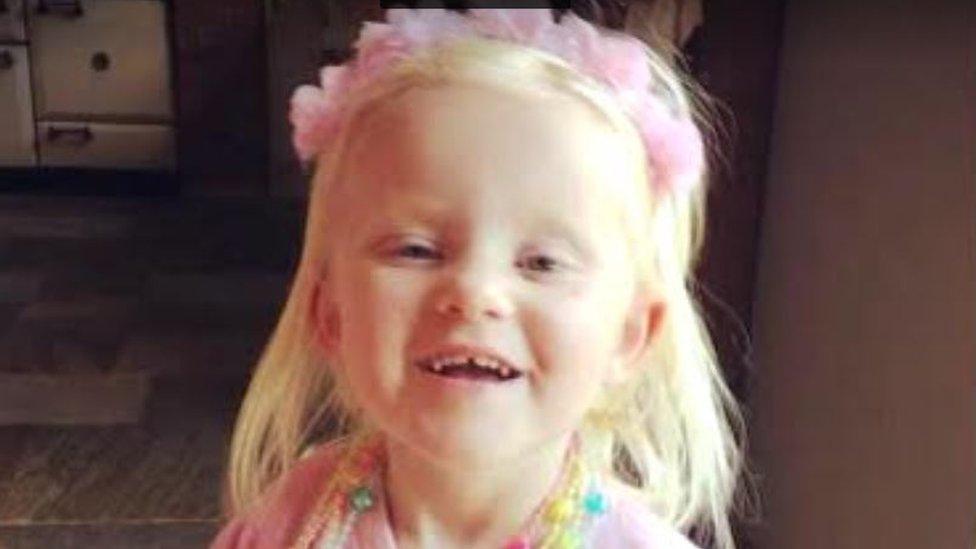
Skyla Whiting died with sepsis days after becoming unwell with an upset tummy in May 2018
A mum whose four-year-old daughter died with sepsis says waiting more than three years for her inquest has added to her grief.
Skyla Whiting died days after becoming unwell with an upset tummy in May 2018. Her inquest is set for 19 November.
Her mother Amy Whiting, from Blaenavon, Torfaen, said the wait had been "like a big black cloud over your head".
The Ministry of Justice said the Covid pandemic had posed "significant challenges" but services had continued.
'Our world'
Mrs Whiting said: "Skyla was a beautiful, bubbly little girl and really, really healthy, no medical problems at all.
"Everything about her was special, she was our world."

Skyla Whiting died in May 2018 and her inquest is set for 19 November
Mrs Whiting said when Skyla came home from school complaining of an upset tummy in May 2018 she took her to her GP, who initially thought her lactose allergy may have come back.
That night, Skyla became unwell with a temperature and a rash over her body, so her parents took her back to the GP the next day where they were told she had a viral infection.
Her condition again worsened that night.
"She seemed to be very thirsty all the time, she had a really high temperature of over 40, and she was vomiting," said Mrs Whiting.
Her parents took Skyla to Nevill Hall A&E department in Abergavenny, Monmouthshire.
After spending some time on the children's ward they were again told Skyla had a viral infection and sent her home.
Mrs Whiting said: "Skyla again overnight became more poorly.
"We phoned the hospital in the morning and asked could we bring her back in and we were told no, they didn't want us to bring her back in because her symptoms were that of a viral infection.
"So I phoned back again an hour later and said 'no, I'm not happy about that, I want her to go back in, she's definitely deteriorating'.
"She was vomiting, she had diarrhoea she couldn't even walk, we were carrying her."
Skyla was taken back to the children's ward where they did blood tests which found her infection levels to be seriously high.
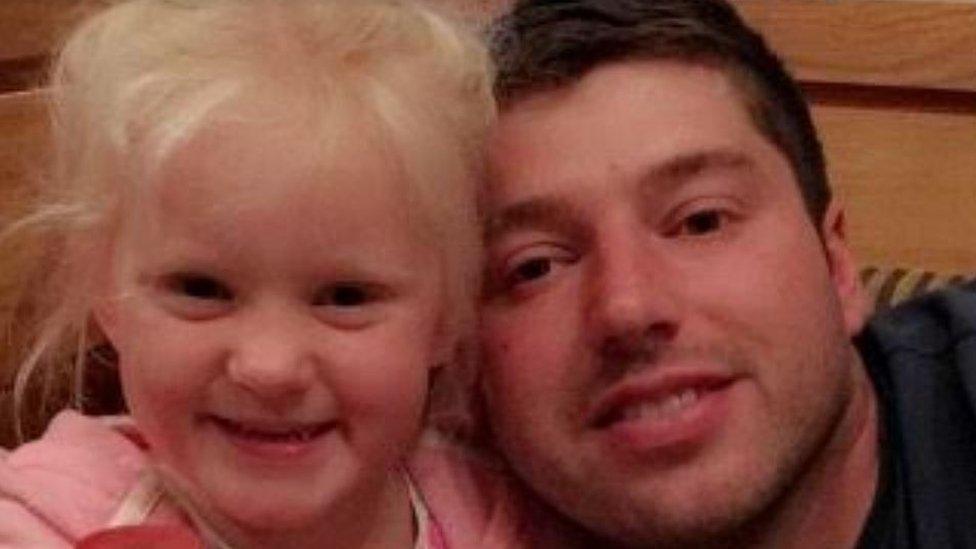
Skyla's parents plan to attend the inquest into her death in November
"Her lips had turned blue and she was in extreme pain with her legs," said Mrs Whiting.
"It took until seven o'clock the next morning for a consultant to come and actually see her. He then realised that she was in septic shock, external.
"She was ventilated and taken to Noah's Ark Children's Hospital [in Cardiff], who were absolutely fabulous with her but unfortunately it was too late by the time we got there."
Skyla deteriorated further overnight and she died on 15 May.
Aneurin Bevan University Health Board said: "Our thoughts remain with the family of Skyla and we're very sorry for the circumstances surrounding the care she received.
"This matter has been fully investigated by the health board in accordance with its serious incident protocol.
"The findings have been fully and openly shared with the family and the Senior Coroner for Gwent."
It said the health board had already undertaken "corrective actions to address the issues raised through our investigation".
"We have focused heavily on the topic of sepsis during staff clinical governance days, as well as increasing awareness of the Clinical Sepsis Pathway and emphasising the importance of recognising the symptoms of deteriorating patients," it said.

Skyla's mother Amy says she is nervous about attending the inquest
'I think the worst'
Skyla was Mrs Whiting and her husband's first child. The couple have since had a son, aged two.
"I don't cope very well," said Mrs Whiting, "whenever he's unwell I think the worst."
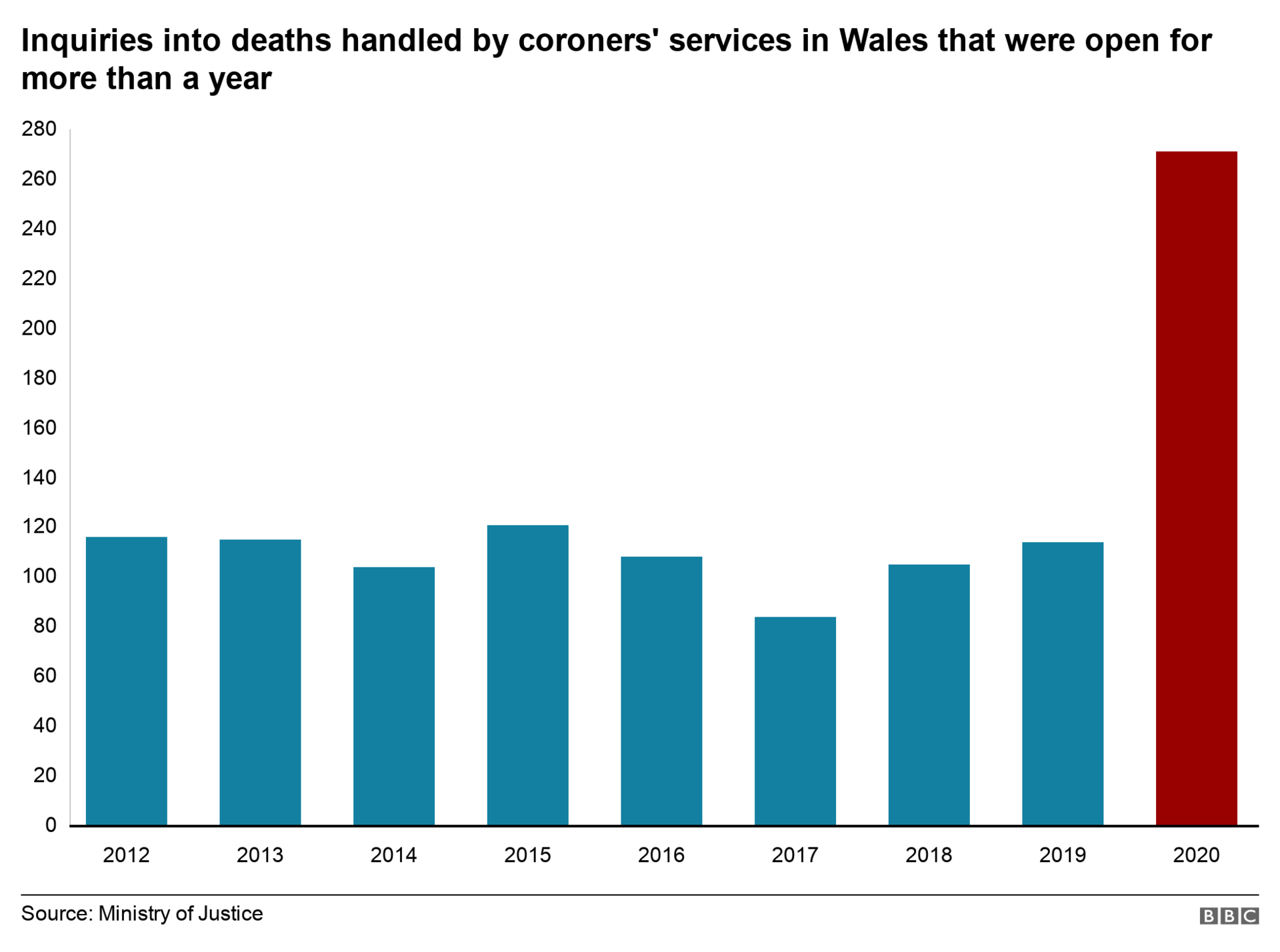

How long are people waiting for inquests?
Ministry of Justice data, external showed in 2020, 271 inquests had been open for more than a year and 73 of those had been open for more than two years.
That is a 138% rise on the previous year, when a total of 114 had been open for more than a year.
Wales has seven coroners. In 2020, the area with the highest average time to process an inquest was Gwent with 46 weeks, followed by North Wales (east and central) at 40 weeks and Ceredigion at 36 weeks.
Carmarthenshire and Pembrokeshire and Swansea and Neath Port Talbot followed, both with average processing times of 32 weeks, South Wales Central at 31 weeks and North West Wales with 28 weeks.
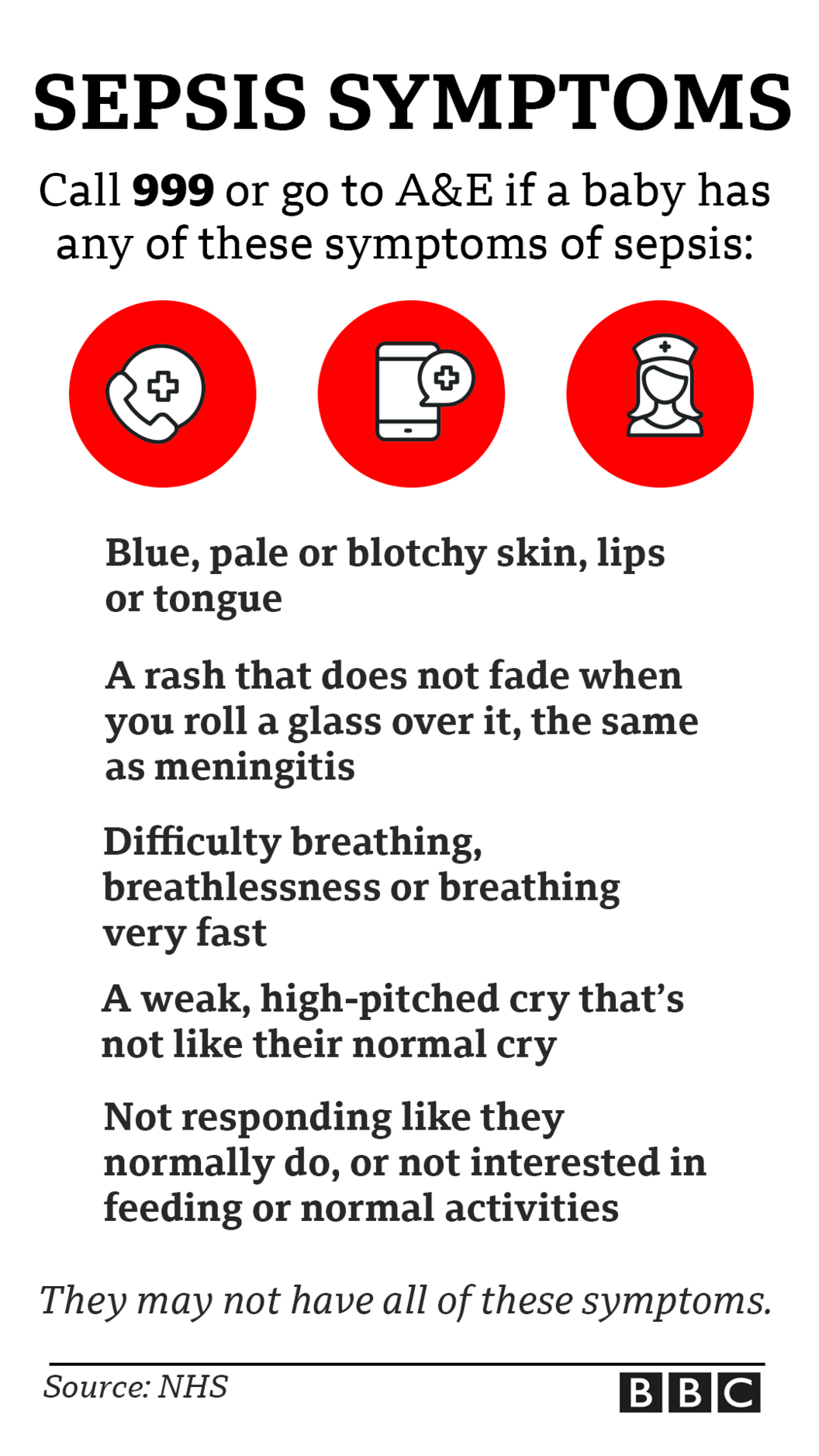

'Brings back the trauma'
Mrs Whiting said: "Waiting for the inquest to happen or just finding out if there's going to be an inquest is draining, it's absolutely draining.
"It's like a big black cloud over your head, everybody knows that inquests are not nice things to go through and the constant waiting is exhausting.
"I don't know why it's been delayed, I don't know if it's because of Covid."
She and her husband plan to attend the inquest: "I'm really nervous. We've had some of the witness statements and it brings back all the trauma."
Mrs Whiting said not enough consideration had been given to bereaved people during the pandemic: "I feel like it is such a traumatic thing to have to go through and I do feel that there needs to be more support out there for families.
"I haven't had any [emotional] support from the system, I've had to go privately."
She said communication needed to be improved: "Just to be kept updated maybe once a month - you go so long without hearing anything and it would be really good to be kept in the loop about what's happening.
"I think communication in these circumstances is everything because that's the only thing that you're kind of holding onto is waiting to hear things."
Law Society president I. Stephanie Boyce said: "Inquest delays are another example of where the general lack of investment in the justice system is creating lengthy delays which will impact all the people involved in the case, including those suffering a bereavement.
"As the coroner's inquest cannot be finalised until the completion of the related criminal trial, the significant backlogs in the criminal courts, which pre-dated the pandemic but have been exacerbated by it, means lengthy delays will inevitably delay the inquest."
A Ministry of Justice spokeswoman said: "While the pandemic has posed significant challenges, these vital services have continued to be delivered - thanks to dedicated coroners, their hard-working staff, and additional funding provided by the government."
'Incredibly difficult'
Rebecca Mather, associate solicitor in the clinical negligence team at law firm Hugh James, said: "This is already an incredibly difficult and upsetting time for those who have lost a loved one.
"Many families see the inquest process as an opportunity to get answers, to ensure that a full review is carried out, and to find closure in tragic circumstances."
Related topics
- Published14 May 2021
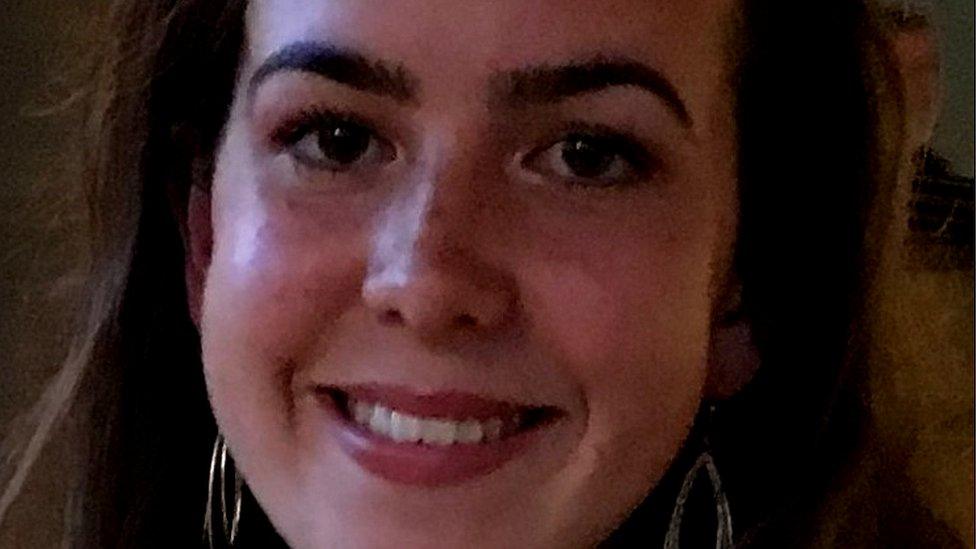
- Published13 September 2018
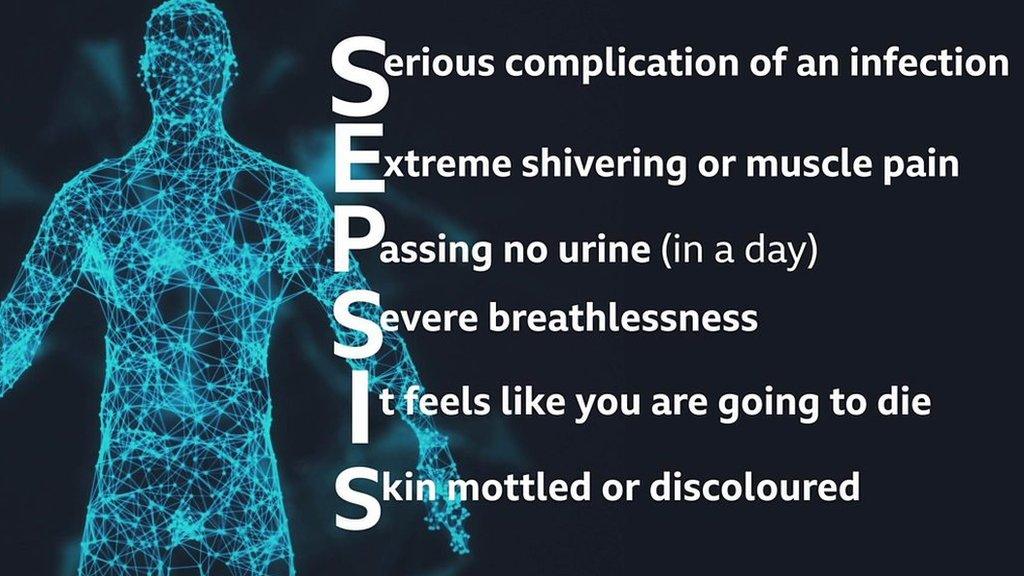
- Published13 September 2018
